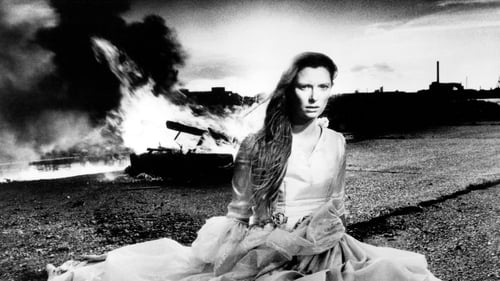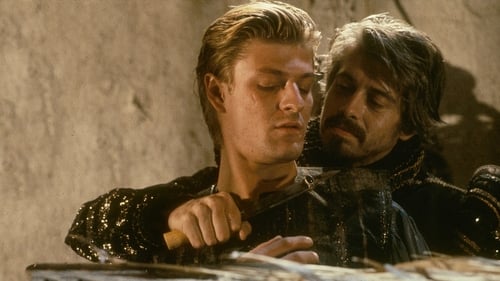
Director
The film documents a small event situated on the Idroscala di Ostia, close to the place where Pier Paolo Pasolini was murdered on the night of November 2, 1975. A vandalised concrete sculpture now commemorates the spot where Pasolini died a few hundred yards away from the mouth of the Tiber.

Director
A record of screen tests carried out to select young male actors suitable to perform in the singer Kim Wilde's newest promotional video.

Director
Inspired by a poem by William Blake: a short experimental film about the perception of vision.

Cinematography
The artist's personal commentary on the decline of his country in a language closer to poetry than prose. A dark meditation on London under Thatcher.

Altar Boy (uncredited)
El pintor Michelangelo Merisi, nacido en Caravaggio, se está muriendo lejos de su hogar. En el lecho de muerte recuerda los comienzos de su vida como pintor. El niño Michelangelo dejó su Caravaggio natal al quedar huérfano, y se traslada a Milán, donde se inicia como pintor en diferentes talleres, hasta que establece un taller propio, en la Roma de los Papas, ganándose el favor de la Iglesia, que le encarga numerosas obras. Llegan entonces la fama, el dinero, sus amores homosexuales, las intrigas políticas y religiosas, la envidia y el crimen.

Hail the New Puritan is a fictionalised documentary about the Scottish dancer and choreographer Michael Clark. Set design by the inimitable Leigh Bowery.

Director
A 16mm anthology of experimental super 8 films by Derek Jarman, Michael Kostiff, Cerith Wyn Evans and John Maybury, with framing footage by Tim Burke of Brion Gysin using a dream machine. Jarman's contribution is a version of his 1977 Art and the Pose (aka Arty the Pose), refilmed at 3fps, with a musical soundtrack. Jarman planned The Dream Machine as a commemoration of William Burroughs and Gysin's 1982 visit to the UK, and received initial funding from the Arts Council in 1983, then rethought the project as a portmanteau film featuring Gysin alone. The production remained in limbo until 1986, when James Mackay obtained completion funding from the British Film Institute. (Since this film was released on VHS accompanied by Jarman's Broken English: Three Songs by Marianne Faithfull, T.G.: Psychic Rally in Heaven and Pirate Tape under the umbrella title The Dream Machine, synopses of this film have often muddled up its details with those of the earlier films. )

The Angel
Un estudio eyaculatorio de frustración, tormento, estupidez e insolencia.

Editor
Una evocativa y radical visualización de los poemas de amor de William Shakespeare leídos por Judi Dench. Catorce sonetos emparejados con etéreas secuencias, figuras de mar, jardines coloridos y mágicas escenas con imágenes de paisajes que expresan perfectamente el amor explorado en los sonetos.

Cinematography
Imagining October explores art and politics in the final years of the Cold War, drawing connections between pre-Perestroika Russia and Thatcherite Britain. The title refers to the 1917 Bolshevik revolution and Sergei Eisenstein’s propaganda film October: Ten Days That Shook the World 1928. The project began during a trip to the Soviet Union sponsored by the British Film Institute in October 1984. Jarman was invited to present The Tempest in Moscow and Baku with fellow filmmaker Sally Potter and film theorist Peter Wollen and asked in return to make a short film for the London Film Festival in November.

Director
By the end of the punk movement in the mid-80s, London’s vibrant club scene had become a source of inspiration. Cerith Wyn Evans’ Epiphany is a colorful documentation of this underground hedonism.

An aged art connoisseur (Beaumont) and his young female neighbour (Coles), who has a job posing naked in a club, meet and exist in fantasy and reality. Although this raises certain much-discussed questions about the nature of representation, and about the construction of narrative and daydreams in films, 'Phoelix' tends to treat these as just pretty and pertinent issues, opting instead for a mannered concentration on detail.










